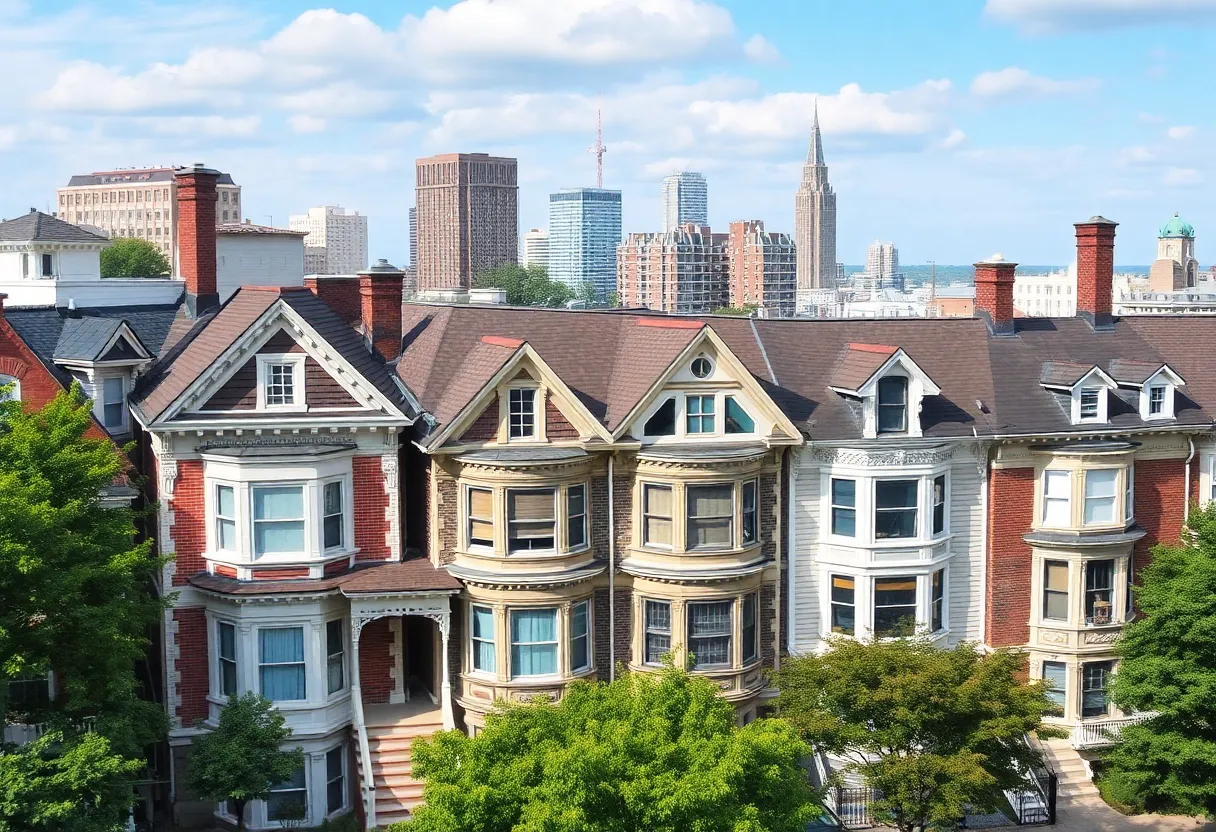How to Navigate the Philadelphia Home Renovation Landscape: Insider Tips for Success
Deciphering Philadelphia’s Renovation Regulations and Local Nuances
Navigating home renovations in Philadelphia demands an in-depth understanding of its regulatory environment and architectural landscape. The city balances historic preservation with modernization, creating a unique scenario for homeowners and contractors. To succeed, it’s essential to comprehend the intricacies of zoning laws, permit requirements, and historic preservation guidelines.
Philadelphia’s history-rich structures—ranging from colonial facades to Victorian homes—pose distinct challenges. Exterior modifications often require adherence to guidelines intended to maintain neighborhood identities. Concurrently, building codes emphasize safety, energy efficiency, and structural integrity.
Fundamental Pre-Renovation Assessments
1. Verify Zoning and Historic Designations
Begin by confirming whether the property resides within a historic district or holds historic status on the Philadelphia Register of Historic Places. This classification influences permissible alterations. Changes impacting exteriors, such as facades, roofing, and windows, typically need approval from the Philadelphia Historical Commission. Ignoring these processes can lead to fines or delays, jeopardizing project continuity. To check your property’s status, consult local zoning maps or the Philadelphia Historic Preservation Office.
2. Clarify Permit Needs
Philadelphia’s Department of Licenses and Inspections (L&I) enforces permit requirements. Minor repairs or cosmetic updates—like painting or non-structural interior work—may qualify for simplified approvals. However, structural modifications, additions, or exterior alterations necessitate permits, possibly with detailed plans. Projects exceeding certain thresholds or involving critical systems mandate formal submissions, including signed and sealed plans by licensed architects or engineers.
3. Hire Licensed, Experienced Professionals
Engage contractors familiar with Philadelphia’s permitting process and local building codes. Verify their licenses, insurance, and tax compliance. For substantial projects, ensure that plans are prepared and sealed by qualified professionals. Proper selection of experienced contractors reduces risk, expedites approvals, and ensures ongoing compliance.
Common Renovation Pitfalls and How to Avoid Them
1. Neglecting Permitting and Approval Protocols
Overlooking permit requirements can result in legal penalties, project halts, or costly rework. Prioritize obtaining all necessary approvals before breaking ground. It’s advisable to create a comprehensive checklist aligned with project scope.
2. Underbudgeting or Failing to Account for Unforeseen Costs
Budgeting realistically involves incorporating a contingency of 10-20%. Unexpected issues—hidden structural damage, asbestos removal, or code upgrades—can significantly inflate costs. Vigilant financial planning minimizes project disruptions.
3. Disregarding Neighborhood Context
Tailoring renovations to fit the architectural style and scale of neighboring properties preserves neighborhood cohesion and maximizes resale value. Over-improving—such as extensive additions or luxury upgrades—may create mismatch, impacting market attractiveness.
Step-by-Step Guide to a Successful Renovation
1. Create a Precise Scope of Work
Start with detailed sketches, specifications, and material choices. Clarify design priorities, budget limits, and timelines. Precise scoping prevents scope creep and facilitates smoother contractor coordination.
2. Secure Permits Early
Apply through L&I with comprehensive documentation. Timely submission reduces approval delays. Keep copies of all filings, approvals, and correspondence for follow-up.
3. Communicate Transparently with Neighbors
Notify neighbors about upcoming work—particularly in close-knit neighborhoods. Respect noise ordinances and work hours. Maintaining goodwill avoids conflicts and garners community support.
4. Monitor Progress Regularly
Conduct frequent inspections during construction. Confirm adherence to plans, codes, and quality standards. Address issues promptly to prevent costly rework and project delays.
Final Tips for a Smoother Renovation Experience
– Engage Local Experts: Collaborate with architects, inspectors, and seasoned contractors intimately familiar with Philadelphia’s regulations.
– Prioritize Documentation: Keep detailed records of permits, plans, inspections, and communications for legal protection and future reference.
– Plan for Post-Construction: Schedule inspections and approvals needed for occupancy and resale, if applicable. Ensure all safety systems comply with current codes.
Essential Takeaways for Philadelphia Homeowners
– Always verify if your property falls under historic preservation rules. Engage with the Philadelphia Historical Commission early.
– Understand permit requirements thoroughly—failure to do so risks legal issues and delays.
– Work with professionals experienced in local building codes and permit processes.
– Incorporate neighborhood context into renovation plans to maximize property value.
– Budget a contingency fund for unforeseen expenses, and maintain excellent documentation.
Frequently Asked Questions
What is an EZ Permit in Philadelphia?
An EZ Permit allows certain minor construction and renovation projects to proceed without submitting detailed plans. These permits are designed for straightforward work that meets specific criteria established by the Department of Licenses and Inspections.
Do all renovation projects need permits in Philadelphia?
No, not every project requires a permit. Cosmetic and minor repairs—such as painting or minor interior updates—are often exempt. However, structural changes, additions, or exterior modifications almost always require proper permitting.
How can I ensure my contractor is qualified for Philadelphia projects?
Select contractors licensed and insured to operate in Philadelphia. Confirm their experience with local codes and permits. Request references and verify credentials through official licensing bodies for peace of mind.
What are common pitfalls during renovation in Philadelphia?
Key pitfalls include neglecting permit processes, underestimating project costs, and over-improving beyond neighborhood standards. Proper planning, professional guidance, and research mitigate these risks effectively.
How can I identify if my property is within a historic district?
Consult the Philadelphia Register of Historic Places or contact the Philadelphia Historical Commission. They provide maps and listings that specify whether your property falls within designated historic zones.
| Feature | Description |
|---|---|
| Zoning & Historic Status | Determines allowable changes and approval pathways. Essential to verify before planning. |
| Permitting | Requires comprehensive documentation for structural and exterior modifications. Permits ensure regulatory compliance. |
| Professional Engagement | Qualified, licensed contractors familiar with local codes minimize legal and safety risks. |
| Neighborhood Context | Aligning renovations with local styles and standards enhances value and community harmony. |
| Budget & Contingency | Realistic budget with contingencies mitigates unforeseen expenses and project delays. |
Author: STAFF HERE PHILADELPHIA WRITER
The PHILADELPHIA STAFF WRITER represents the experienced team at HEREPhiladelphia.com, your go-to source for actionable local news and information in Philadelphia, Philadelphia County, and beyond. Specializing in "news you can use," we cover essential topics like product reviews for personal and business needs, local business directories, politics, real estate trends, neighborhood insights, and state news affecting the area—with deep expertise drawn from years of dedicated reporting and strong community input, including local press releases and business updates. We deliver top reporting on high-value events such as Mummers Parade, Philadelphia Flower Show, and Thanksgiving Day Parade. Our coverage extends to key organizations like the Greater Philadelphia Chamber of Commerce and United Way of Greater Philadelphia, plus leading businesses in telecommunications, food services, and healthcare that power the local economy such as Comcast, Aramark, and Children's Hospital of Philadelphia. As part of the broader HERE network, we provide comprehensive, credible insights into Pennsylvania's dynamic landscape.





